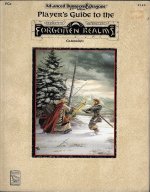The more interesting question for me is "Who is responsible?"
This is the more interesting question yes. You define bad thus:
doesn't work with the intended method and focus of play
In that case, I would say that the biggest slice of blame can usually reasonably be apportioned to
the designers of the game.
That's based on my long experience of "bad characters" by your definition, including making them myself, particularly in the 1990s. I see a few potential common routes:
1) You picked character/class that, on paper, according to their description, should function well, but in fact, they don't, for largely mechanical reasons (but sometimes also because the setting just doesn't actually allow them to be played!). This is incredibly common - the vast majority of bad characters. 5E is less afflicted by it than most games, as was 4E, but 3E was afflicted with it vastly more than most games.
Essentially you've been "sold a bill of goods" by the designers - and whether that's ineptitude, malice, weird ideas or whatever, it's hard to discern. Certainly some RPGs it seems to be a combination of all three! This is on the designers, especially in complex RPGs. We cannot reasonably expect DMs and players to foresee this kind of thing.
2) You picked a character/class that the game really strongly encouraged you to, and allowed you to entirely RAW and apparent RAI, which makes sense within the setting, but if you actually go ahead and play them, they act as a complete wrecking ball and cause big problems.
This is slightly different to the above, because it may not be that the designers lied to you, as much as they encouraged you to behave like a particular kind of maniac and said it would be fine and that their game could totally handle it. And it totally couldn't. The blame is a little more complex here, because it's usually not just a rules failing, but the designers encouraging essentially obnoxious play by for example, including a class which is designed to mess with/disrupt other PCs, despite the game being an essentially cooperative one (assuming it is). There was a lot of this in '90s RPGs. oWoD having a particular ton but D&D and Shadowrun and so on weren't immune, nor was indie stuff like SLA Industries. There were 2E Kits, for example, that no-one should have been playing. oWoD Vampire Paths that had no place in an actual group. This is like, still I'd say, 70-80% on the designers, because they why did they even include that option? Why did they encourage people to take it? Unless your RPG is a special "expert mode" one full of disclaimers, you have to assume your audience is mostly new-ish to RPGs, and somewhat naive/innocent. If you put a lot of disclaimers on something and explained its role, more culpability goes on the DM and player involved, but it'd take a lot to get to even 50% only being on the designers.
Between them, that is almost all the "bad characters" I've actually seen in games. Easily 80% - most of them type 1.
The rest usually boil down to "Player designs character who fundamentally conflicts with the ethos of the game and the player knows it", like me when I was being a difficult teen and made a rude, unkempt cowboy for Castle Falkenstein and accidentally taught myself a lesson. If this can be achieved RAW/RAI and setting-appropriate, maybe a small amount of blame goes on the designers, but not much - only if it's so "within the lines" that the DM has difficulty saying "No" or even seeing it'll be a problem does more than say, 10% go on them. Otherwise the blame usually should be mostly with the player, but also with the DM for allowing the character to be played, if it was obvious.
Support characters definitely have niche appeal. Some people love them, but boy, if you are not that type of person, they're the worst. Every time I've tried to play them in MMOs, everyone ends up miserable as a result.
Yes whereas I am 100% that type of person, and MMOs where there are no support characters (which is quite a lot of them) or where "everyone is" (usually in some totally fake bollocks way, like GW2) tend to gradually bore me to tears. I mind less with TT RPGs, because support characters only really make sense the context of fairly complex mechanics with some degree of potential metagame thinking and many RPGs eschew both.

